This Week in NJ: March 5th, 2021
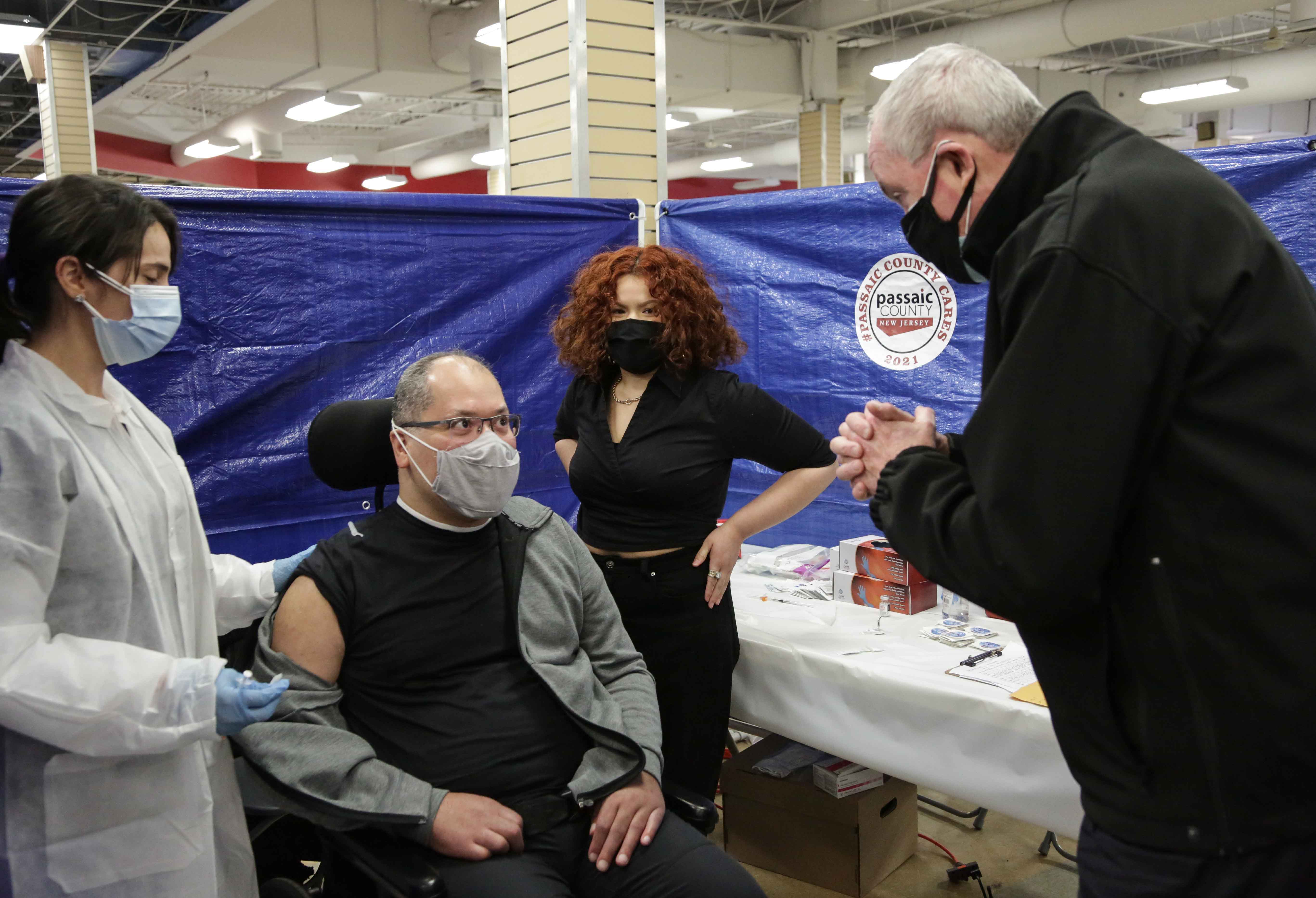
Governor Murphy Announces Expansion of Eligibility for New Jersey’s COVID-19 Vaccination Program
Governor Murphy announced the expansion of eligibility for more frontline essential workers and high-risk groups in New Jersey’s COVID-19 vaccination program. Eligible groups include educators and staff in pre-k through 12th grade settings, childcare workers, and transportation workers, among others. Educators and childcare professionals are immediately eligible.
“Our administration has built the infrastructure – including nearly 300 vaccination sites across the state – needed to support New Jersey’s COVID-19 vaccination demand,” said Governor Murphy. “As the federal government continues to make more vaccine doses available, we are confident in our ability to expand our vaccination program to reach more of our essential workers and vulnerable populations. Our goal is to provide every New Jerseyan with a vaccine when it is available and they are eligible.”
“As vaccine supply increases, this phased expansion of new eligibility groups keeps New Jersey moving forward toward our goal of vaccinating 70 percent of the eligible adult population,” said New Jersey Department of Health Commissioner Judith Persichilli.
Beginning Monday, March 15, the following categories are eligible for vaccination:
- Public and local transportation workers, including bus, taxi, rideshare, and airport employees; NJ TRANSIT workers; and Motor Vehicle Commission staff;
- Public safety workers who are not sworn law enforcement or fire professionals, including probation officers and fire safety inspectors;
- Migrant farm workers;
- Members of tribal communities; and,
- Individuals experiencing homelessness and those living in shelters, including domestic violence shelters.
Additionally, beginning on Monday, March 29, frontline essential workers in the following categories are also eligible for vaccination:
- Food production, agriculture, and food distribution;
- Eldercare and support;
- Warehousing and logistics;
- Social services support staff;
- Elections personnel;
- Hospitality;
- Medical supply chain;
- Postal and shipping services;
- Clergy; and,
- Judicial system.
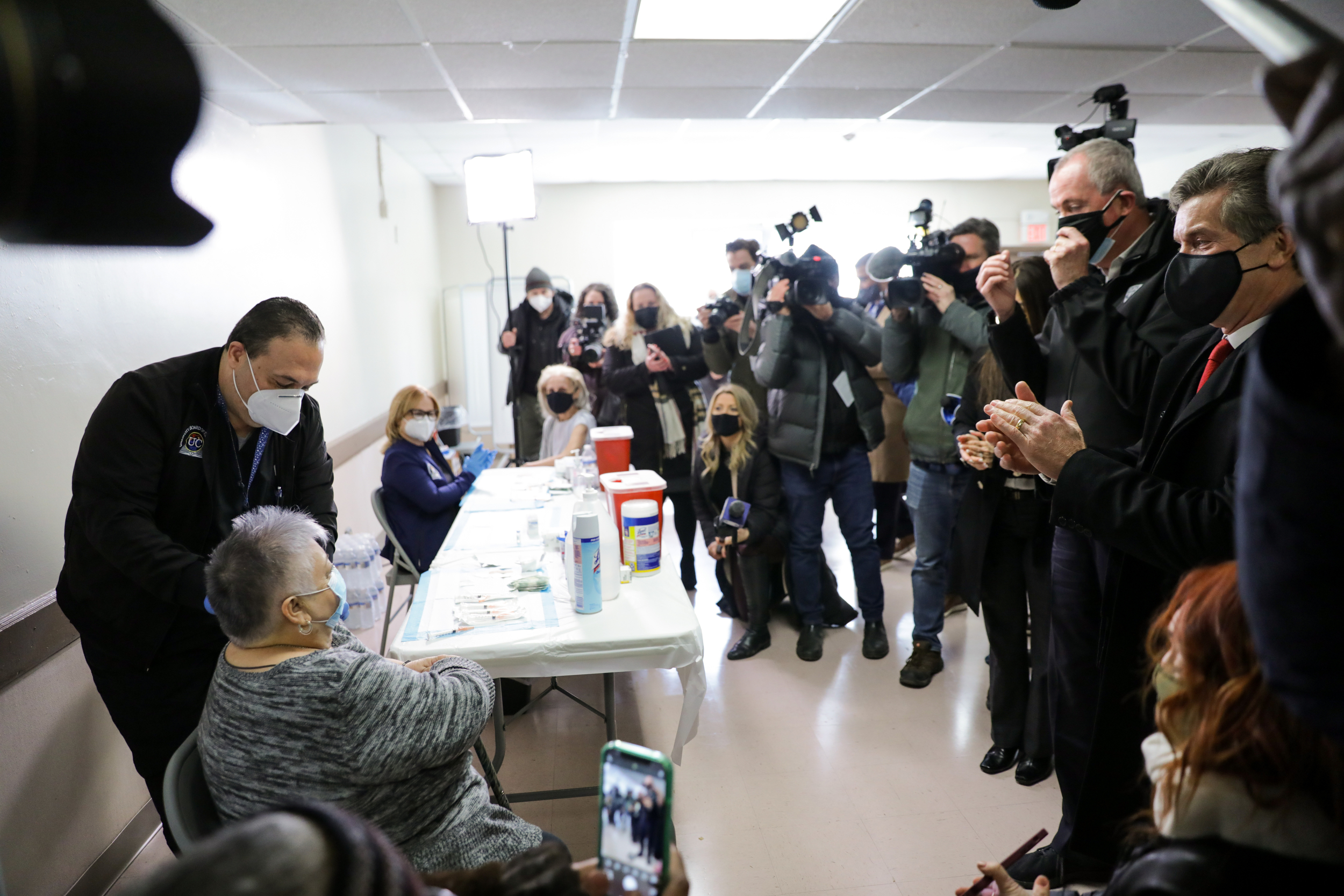
Governor Murphy, Johnson & Johnson CEO Alex Gorsky, Department of Health Commissioner Judy Persichilli, Union City Mayor and Senator Brian Stack, and Hudson County Executive Tom DeGise Observe Union City Seniors Become Among The First in the State to Recieve the Johnson and Johnson COVID-19 Vaccine
Governor Murphy, Johnson & Johnson CEO Alex Gorsky, Department of Health Commissioner Judy Persichilli, Union City Mayor and Senator Brian Stack, and Hudson County Executive Tom DeGise visited the Union Plaza Apartments in Union City, where they observed senior citizens become among the first people in New Jersey to receive the Johnson and Johnson vaccine.
VIEW PHOTOS
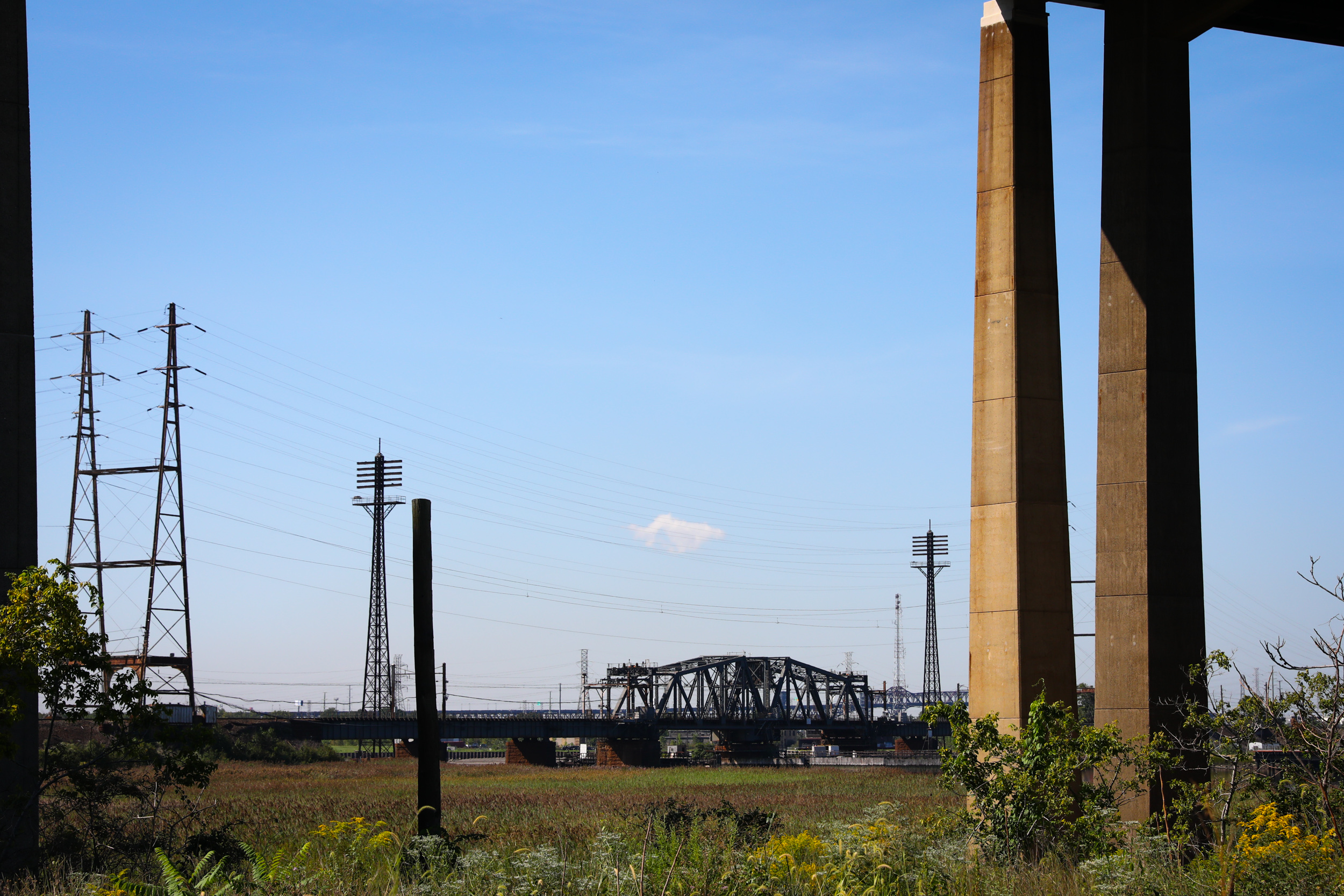
Governor Murphy, New Jersey Commissioners of the Gateway Development Commission, Congressional Delegation Members, and NJ TRANSIT Leadership Mark the First Meeting of the Fully Constituted Gateway Development Commission
As part of a multi-year effort to obtain federal funding and advance work on the Gateway Program, Governor Murphy signed legislation in 2019 creating the Gateway Development Commission (GDC) and announced the appointments of New Jersey’s Commissioners to the GDC, Balpreet Grewal-Virk, Janine Bauer, and Jerry Zaro. In 2020, Governor Murphy secured federal funding for the Portal North Bridge Project, a critical component of the Gateway Program. Additionally, the Governor, along with New Jersey’s Congressional delegation, successfully secured a policy change from the Biden Administration, removing a Trump-era policy that prevented federal loans from being used as local matching funds on major infrastructure projects, like the projects in the Gateway Program.
This meeting of the Gateway Development Commission is the first meeting with all of New Jersey and New York Commissioners seated, and marks a new era of cooperation with the federal government on improving the commuting experience for the people of New Jersey. This first meeting begins the process of building the organization of the Commission, as well as noting the progress that the Gateway project partners, including NJ TRANSIT, Port Authority and Amtrak, continue to make on the Hudson Tunnel Project, which includes the building of new tunnels followed by the complete rehabilitation of the existing North River Tunnels.
“The first meeting of the Gateway Development Commission with a full board is a significant milestone on our path to rebuilding the most critical components of our regional transportation infrastructure,” said Governor Murphy. “With New Jersey’s final two Commissioners in place, the Commission can now begin to build an organization in the coming months to advance the important work of the Gateway Program. I look forward to working with the Commission, our partners in New York and at Amtrak, and the Biden Administration to transform our infrastructure and deliver a rail system that works for our commuters.”
“The Gateway Program is essential to preserving New Jersey’s economic future,” said Gateway Development Commission New Jersey Co-Chair Balpreet Grewal-Virk. “I am grateful for the support of Governor Murphy, the State Assembly and State Senate and look forward to delivering for the riders of NJ TRANSIT and the people of New Jersey.”
“The Gateway Program represents a comprehensive, thoughtful approach to a vexing regional problem that must be addressed through collaboration and cooperation,” said New Jersey Commissioner Janine Bauer. “In particular, I look forward to working with my colleagues on the Commission to deliver new and modernized tracks to go into, through, and out of New York to expand the capacity and reach of the network and improve the quality of the commute for thousands of commuters on a daily basis.”
“Building on the partnership that has taken root over the past several years, I am confident we can deliver this critically important project for the people of New Jersey, New York and America,” said New Jersey Commissioner Jerry Zaro. “It’s time to modernize our transportation network and finally build 21st century infrastructure to power our 21st century economy.”
“Today’s meeting by the full Gateway Development Corporation board is yet another important milestone in our continued effort to improve rail service for the entire Northeast Corridor and for New Jerseyans traveling between Newark and New York City,” said U.S. Senator Bob Menendez. “After securing over $800 million in federal funding to replace the 110-year-old Portal Bridge, I remain committed to seeing the entire Gateway Project completed, including building a new trans-Hudson rail tunnel to Manhattan. GDC will be instrumental in moving this critical project forward and finally providing relief and reliability for delay-weary New Jersey commuters.”
“Today’s inaugural meeting of the Gateway Program Development Commission is yet another exciting step toward providing New Jersey commuters the relief they desperately need,” said U.S. Senator Cory Booker. “In addition to the new Gateway Commission, we now have a new Administration in Washington that understands how critical the Gateway Project is to the region and to our nation. I look forward to continuing to work with Governor Murphy, our stakeholders, the Gateway Commission, and the Biden Administration in seeing Gateway through to completion.”
READ MORE
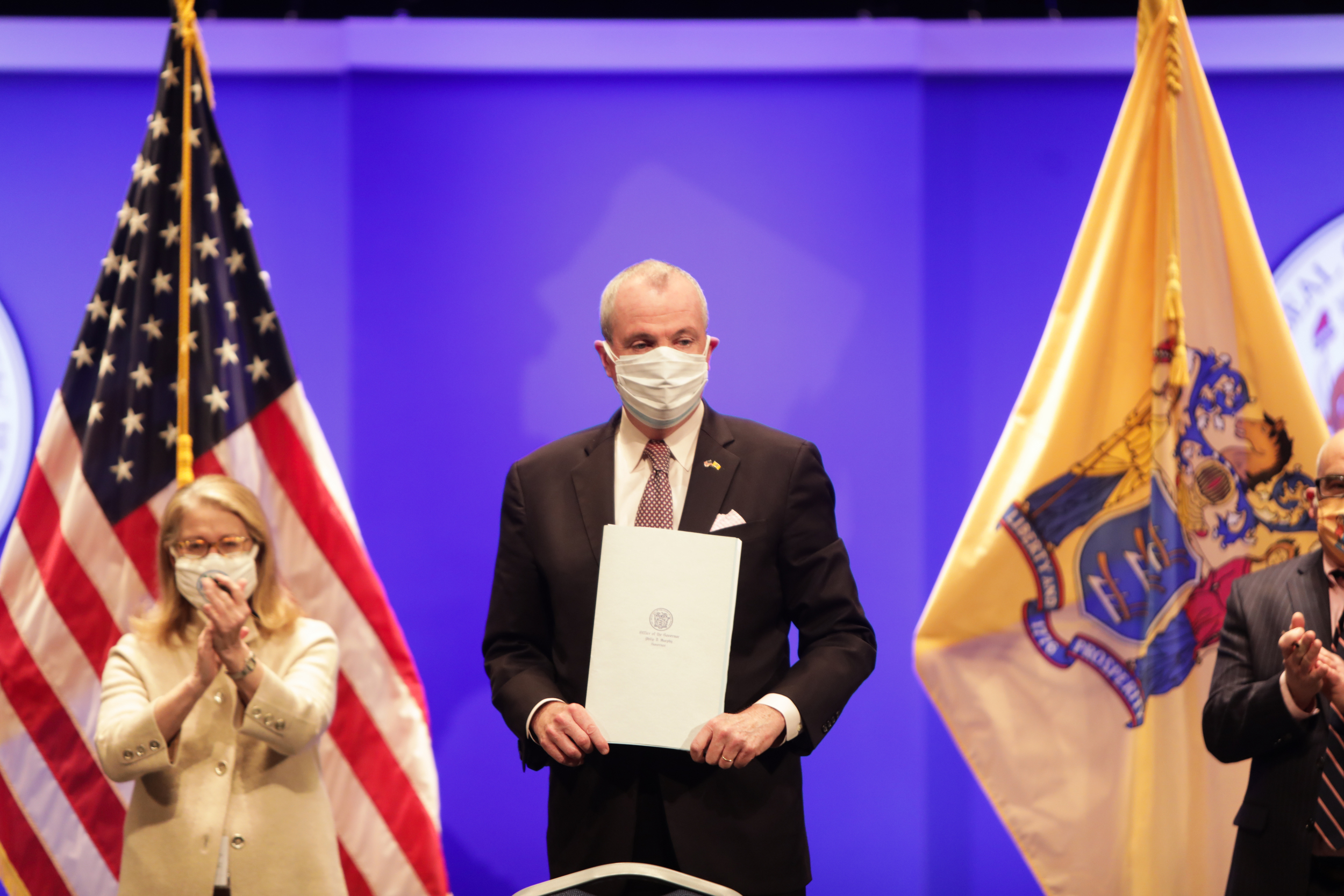
Governor Murphy Signs “LGBTQI+ Senior Bill of Rights” Legislation
Governor Phil Murphy signed legislation (S2545) to establish specific rights and protections for lesbian, gay, bisexual, transgender, undesignated/non-binary, questioning, queer, and intersex (LGBTQI+) older adults and people living with HIV in long-term care facilities.
“Building a stronger and fairer New Jersey starts with ensuring that every individual is given the right to live their truth openly and freely,” said Governor Murphy. “Today’s bill signing underscores this commitment to our LGBTQI+ older adults and people living with HIV in long-term care facilities by providing critical protections from discrimination. No one should ever feel ashamed for who they are, and everyone should be able to live with the dignity and equality that they deserve.”
"This new civil rights law ensures that LGBTQI+ residents in long-term care facilities have equitable access to health care and provides the same legal protections as everyone else regardless of their sexual orientation or health status," said Health Commissioner Judith Persichilli.
“A long-term care facility is a health care setting, but it's also someone’s home,” said Human Services Acting Commissioner Sarah Adelman. “Every person deserves to feel safe, respected, and comfortable where they receive their medical care, and especially in the place they call home. This law is an important step in New Jersey’s continued protection and support of LGBTQI+ individuals throughout their lifespans, including persons with medical conditions and disabilities."
“This law will provide much needed protections for LGBTQI+ and people living with HIV in long-term care,” said New Jersey Long-Term Care Ombudsman Laurie Facciarossa Brewer. “Too often we see LTBTQI+ people going back in the closet when they go into long term care, out of legitimate fear of discrimination, loss of dignity, and freedom. These protections will ensure that our LGBTQI elders can live free from discrimination in these settings.”
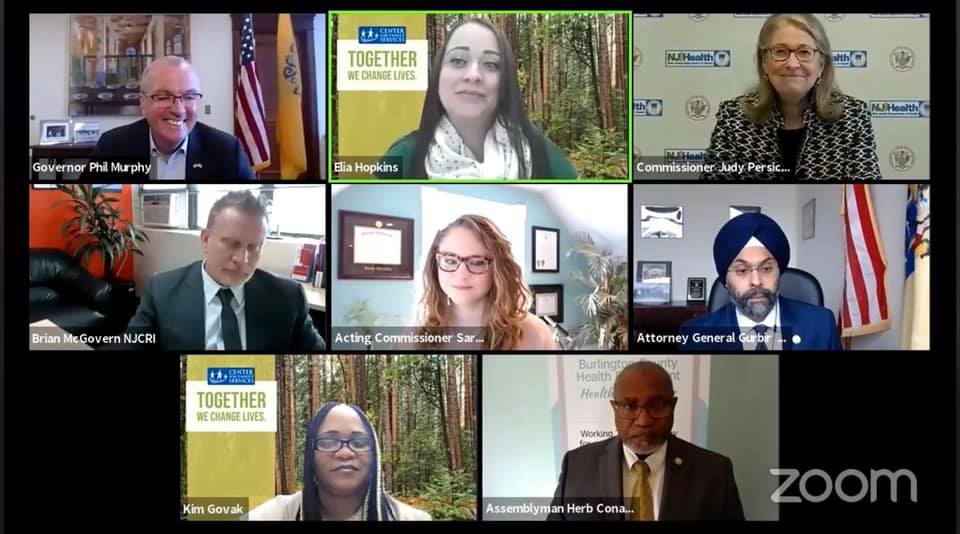
Governor Murphy Reaffirms Commitment to End the Opioid Epidemic, Releases Final 2020 Year-End Overdose Death Data
Governor Phil Murphy reaffirmed his Administration’s commitment to end the opioid epidemic through a comprehensive, data-driven collaboration across several state departments and also released the 2020 year-end statistics for New Jersey. Governor Murphy’s comprehensive approach includes increasing access to evidence-based prevention and treatment programs in our communities, supporting individuals on their path to and maintenance of recovery, supporting data-driven work and strengthening system-wide infrastructure, and using robust law enforcement to stem the supply of illicit drugs. Governor Murphy acknowledged that the 2020 year-end data shows the loss of 3,046 New Jerseyans to suspected overdose deaths, closely comparable to 3,021 suspected overdose deaths in 2019, during a year impacted by the challenges and complexities of the COVID-19 pandemic.
“Despite the complexities and burden of the COVID-19 pandemic, New Jersey averted a dramatic increase in annual suspected drug-related deaths,” said Governor Murphy. “We are confident this is due to the strong foundation our Administration has built over the last several years. The unpredictability of the opioid crisis requires us to continue our pursuit of smart and compassionate policies focused on evidence-based solutions. We will not give up the fight against the opioid epidemic and we will not give up on the New Jerseyans who need us most.”
“Even as New Jersey mobilized to fight the COVID-19 virus, we never lost sight of our ongoing battle to end the opioid epidemic in our state, or our commitment to assisting those struggling with substance use disorders,” said Attorney General Gurbir S. Grewal. “Together with our statewide partners, we took steps to expand access to treatment and recovery services during the height of the pandemic. Our efforts to ensure these therapeutic lifelines remained open undoubtedly helped us prevent a significant increase in drug-related deaths in New Jersey in 2020.”
“Naloxone saves lives, and we will continue working to get it into as many hands as possible in as many ways as possible,” said New Jersey Department Human Services Acting Commissioner Sarah Adelman. “We have worked during this ongoing pandemic to find new ways for residents to access counseling and treatment, and look forward to continuing our efforts. We’re especially excited by the Governor’s plan to end the prohibition on benefits assistance for those with drug convictions, as we’ve seen how this can be an obstacle to treatment. Improving access to treatment remains a top priority.”
READ MORE Official Site of The State of New Jersey
Official Site of The State of New Jersey
